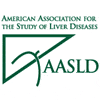 Danoprevir and mericitabine, two experimental hepatitis C virus (HCV) therapies, proved both safe and effective among patients with previous treatment experience, aidsmap reports. Jordan Feld of Toronto Western Hospital Liver Centre presented results from the MATTERHORN study at the Annual Meeting of the American Association for the Study of Liver Diseases (AASLD) in Boston. For the study, he and his colleagues looked at the effects of danoprevir, a second-generation protease inhibitor, and mericitabine, a nucleoside HCV polymerase inhibitor, along with ribavirin and, in a portion of patients, pegylated interferon.
Danoprevir and mericitabine, two experimental hepatitis C virus (HCV) therapies, proved both safe and effective among patients with previous treatment experience, aidsmap reports. Jordan Feld of Toronto Western Hospital Liver Centre presented results from the MATTERHORN study at the Annual Meeting of the American Association for the Study of Liver Diseases (AASLD) in Boston. For the study, he and his colleagues looked at the effects of danoprevir, a second-generation protease inhibitor, and mericitabine, a nucleoside HCV polymerase inhibitor, along with ribavirin and, in a portion of patients, pegylated interferon.
The 379-person study group included patients with HCV genotype 1 who had either responded partially or not at all to a previous round of interferon-based treatment. Partial responders received 24 weeks of therapy from one of three randomly assigned drug combinations: the interferon-free regimen of mericitabine, danoprevir and ribavirin; the mericitabine-free triple therapy of danoprevir with Pegasys (pegylated interferon alfa-2a) and ribavirin; or a quadruple therapy of mericitabine, danoprevir, ribavirin and Pegasys. Prior null responders randomly received either the interferon-free regimen or the quad therapy for 24 weeks.
Partial and null responders taking the quad therapy experienced sustained virologic response (SVR, considered a cure) rates of 86 and 84 percent, respectively, 12 weeks after completing therapy. Partial responders taking the mericitabine-free triple therapy had a cure rate of 56 percent.
Dividing the results between genotype subcategories, researchers found that participants with genotype 1b experienced the highest cure rates, ranging between 91 and 100 percent. Meanwhile, only about three quarters of genotype 1a patients were cured on the quad therapy, and just 30 percent on the mericitabine-free triple therapy.
Other low SVR rates were among the genotype 1b patients who took the interferon-free regimen (genotype 1a patients were not assigned this combination): Partial responders had an SVR of 39 percent 12 weeks after therapy, and null responders had 55 percent.
To read the aidsmap report, click here.
To read a study summary report, click here.
Advertisement
Advertisement
Advertisement






Comments
Comments